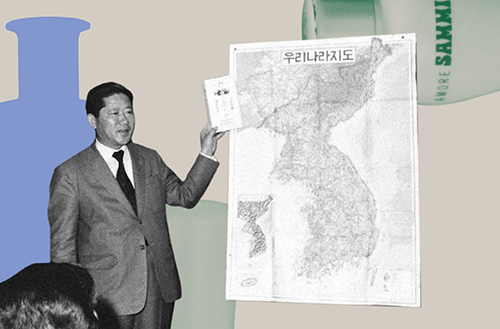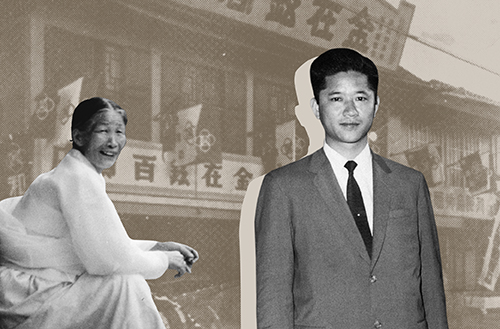
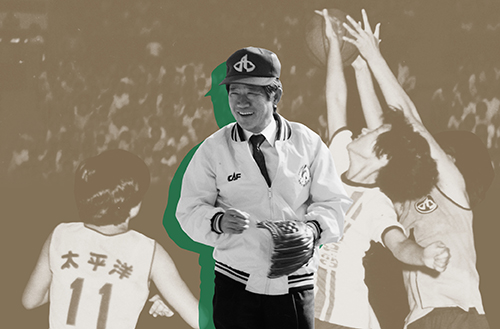
-
-
- 메일 공유
-
https://stories.amorepacific.com/en/amorepacific-the-gracious-smile-of-a-sports-diplomat
The Gracious Smile of a Sports Diplomat

“The Korean team was eliminated from the preliminary rounds in Asia,
and they only made it to the Olympics as a substitute team. Given that,
winning a silver medal is one of the greatest accomplishments ever!”
In 1974, as Pacific continued its steady growth, Jangwon began focusing on the Corporate social responsibility, alongside its corporate expansion. He established the corporate slogan of "We make A MORE Beautiful World" and began returning profits to the society, driven by a commitment to fulfilling the company’s mission. One initiative under this vision was to bring vitality to the sports culture that had been lagging at the time. In 1976, the Pacific Women’s Basketball Team made its debut as the tenth team in the league. At a time when no other company, aside from Hankook Cosmetics, had ventured into women’s basketball, Pacific’s move drew significant public attention. Furthermore, the company’s innovative investment of $150,000 to build a home stadium in Seocho-dong became a major talking point in the sports world.
The launch of Pacific’s Women’s Basketball Team was nothing short of a sensation. Defying expert predictions, they secured a victory in their first game at the 1976 amateur women’s basketball tournament for the spring season, causing a major upset. They went on to win the amateur women’s basketball tournament of the autumn season, earning accolades as "a revitalizing force for women’s basketball, which had been in decline for the past decade." This momentum carried them to the 1984 LA Olympics, where the Korean women’s basketball team achieved a historic triumph, standing tall on the world stage by winning the silver medal. Jangwon’s broad smile during that moment of glory and joy was brighter and more radiant than ever.
They went on to win the amateur women’s tournament during the autumn season, grabbing the championship title. The team received accolades as "the team that provided a fresh breath of vitality for the basketball games that had been losing popularity for ten years."
“I decided to take the office.
Let's work hard together to revive basketball in Korea.”
Jangwon’s pure passion for basketball reached new heights in 1983 when he was offered the position of Chairman of the Korea Basketball Association. Although he believed that a businessman should focus on his company, the vacant presidency of the association, especially with the upcoming LA Olympics, weighed heavily on his mind. After much deliberation, Jangwon accepted the role and began working to enhance the players’ performance and prepare for the Olympics diligently. He also felt a strong mission to redirect public interest from professional football and baseball to basketball, and he spared no investment in the sport’s revival. Jangwon’s strategic brilliance, lauded for its creative planning and execution, shone brightly in the sports world as well.
He introduced the idea of a long game series during the winter when other sports were on break, exploring a new sports culture and new opportunities. Nicknamed the 'genius of marketing,' Jangwon lived up to his reputation by naming the event the 'Jumbo Series,' inspired by the flying elephant character 'Jumbo,' showcasing his exceptional talent in branding. The Jumbo Series, which expanded the number of games by combining a full-league format with a cross-tournament style, attracted immense interest and enthusiasm from the very first day.
The public’s fascination wasn’t just with the games themselves but also with the electric lighting board advertising —a novel idea at the time. These ads appeared for a second whenever the ball hit the ring or backboard, and they were a magical feat of new technology, making South Korea the fourth country in the world to adopt such advertising. These ads successfully secured the necessary sponsorship revenue for the games, marking another triumph in Jangwon’s planning. The Jumbo Series was smooth sailing both inside and outside the arena, with an explosive increase in spectators even before the two-month mark, giving rise to fan clubs and devoted groups of male supporters, reigniting passion in the once-stagnant basketball world.
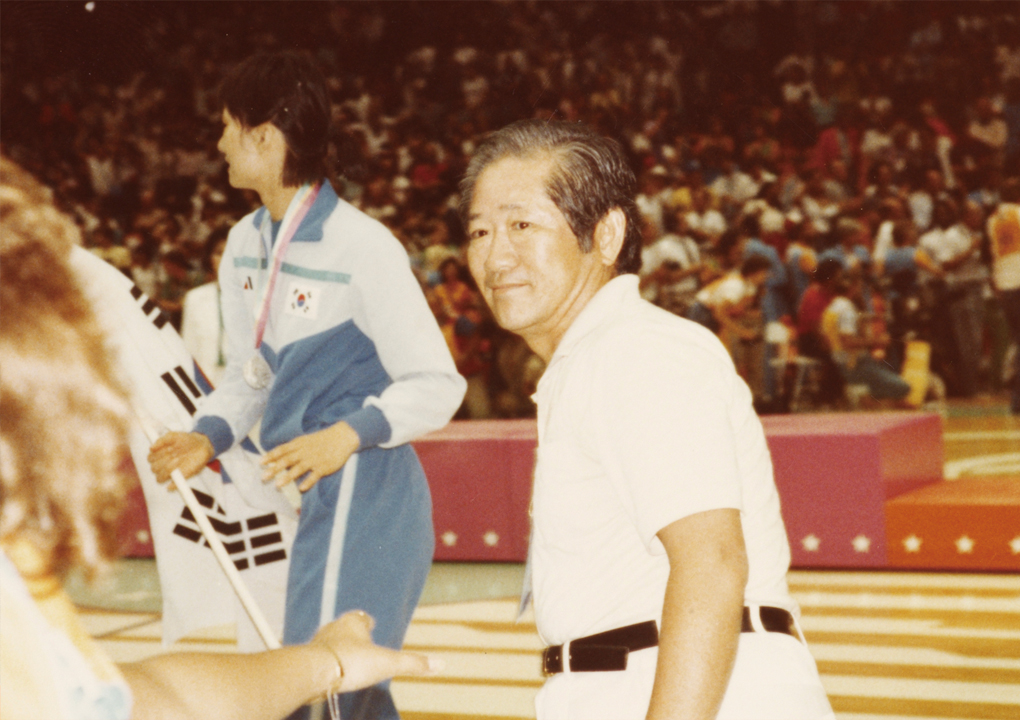
Chairman Sungwhan Suh at the 1984 LA Summer Olympic Games when the Korean women’s basketball team won a silver medal. He didn’t spare anything in the development of basketball in Korea.
“I hope you will let the Chinese people know how polite and great we the Koreans are during the trip as well.”
Jangwon’s involvement with basketball didn’t just stop at transforming sports culture; he also aimed to foster international exchanges through sports. In 1984, regular exchanges with China began with the Asia Youth Basketball Competition held in Seoul. The respect shown to the visiting Chinese team and the spirit of sportsmanship were key to making the exciting matches between Korea and China possible. Building on a spirit of healthy competition, both countries eagerly promised to engage in future exchanges.
Recognizing the importance of continuing these international exchanges through sports, Jangwon remained active as a sports diplomat, even sending letters to organizations like the Cuban Basketball Federation. The 1984 Asian Basketball Confederation (ABC) Championship held in China was not only a platform for smooth exchanges with China but also an event that brought joy to Jangwon and the entire nation. The Korean team’s dramatic victory over China with a score of 62 to 61, securing the championship, was a brilliant accomplishment that served as the culmination to an exhilarating game.
For Jangwon, who had once looked out from an airplane as a young man at the vast expanse of China, witnessing the Korean basketball team return triumphantly from China brought a deep sense of emotion and reflection. Jangwon played a significant role in elevating the status of Korean basketball and in raising the country’s profile on the world stage. Although the joy of fulfilling his responsibilities in sports was always welcome, this joy had to come to an end in 1985.
Jangwon’s health began to deteriorate, leading to his resignation. Although he regretted stepping down just before South Korea would host the 1986 Asian Games and the 1988 Seoul Olympics, his contributions left an indelible mark on the sports world that no one had anticipated. The sports community honored Jangwon with praise, stating that Chairman Suh had made some of the most brilliant and innovative accomplishments among all chairmen of the Association in history and left a monumental legacy in Korea’s basketball community.
“Professional baseball games are loved by the people across all ages and genders.
Now, I am going to serve our consumers through sports.”
Jangwon’s connection to sports did not end with basketball. Having already made his mark in the sports world through basketball, Jangwon soon made his mark on professional baseball. He fondly remembered playing a baseball-like game called 'Homurang' during his childhood and still felt a warm affinity for the sport. Naturally drawn to baseball, he found the offer to acquire The baseball team Cheongbo intriguing. However, the Cheongbo launched in 1982, was not known for its outstanding record.
On the contrary, they recorded 18 straight losses and remained in the lower ranks, leading to the decision to sell the team in 1987. Learning of this situation, those around Jangwon expressed concerns, believing that acquiring a lower-ranked baseball team would not benefit Pacific, which should focus on enhancing its corporate image. But Jangwon saw things differently. He focused on the fact that Cheongbo Pintos’ roots were in Incheon, a city with many displaced people, and wanted to join in easing their longing for home. Thus, Pacific officially launched its baseball team, named 'Pacific Dolphins' by the fans, and began competing in games.
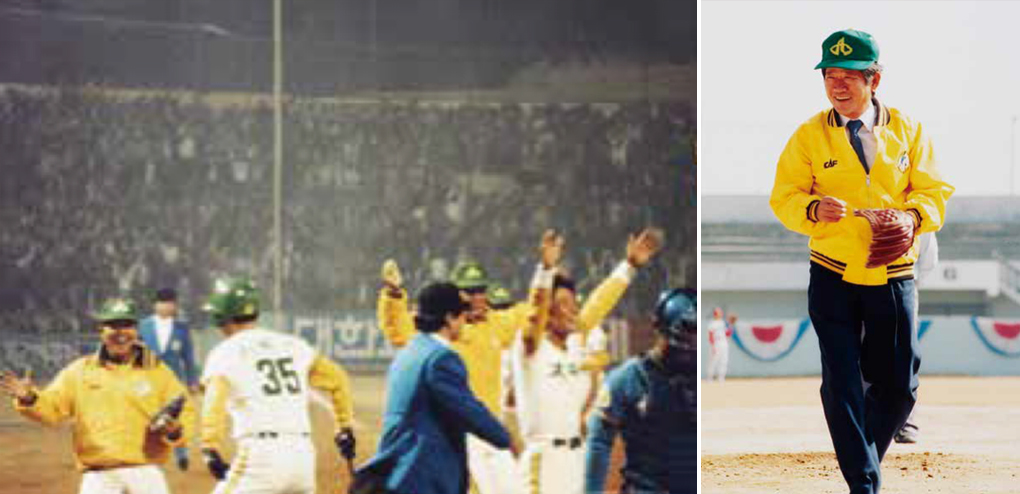
Sungwhan Suh making the first pitch at the opening game of the professional baseball league in April 1990.
Jangwon’s love for baseball was not limited to pro teams to pro teams. He sponsored children’s and high-school leagues, which helped popularize the sport.
With a strong desire to win, Jangwon invested in recruiting top star players and capable coaches to help the baseball team grow. Perhaps due to this, the team’s lackluster performance gradually improved, and in 1989, the Dolphins secured victories, with the joy of success spreading throughout the team. The passion and fighting spirit of the players, who did not stop pushing forward, were rewarded when the Pacific Dolphins achieved a third-place finish in the season—a near miracle. Jangwon decided to make an additional investment and provide more support for the baseball team. However, the expected success did not appear as readily as the capital invested.
The Pacific Dolphins had been in the lowest-ranking group for four years, and was going through a long and dark tunnel, unable to make significant strides. In 1994, as interest in the team slowly waned, the manager declared, on the eve of the season opener, "This season, we will achieve 66 wins and make it to the post-season," a statement that drew criticism from sports insiders. Since there had been no news of the Dolphins strengthening their roster, experts dismissed the claim as baseless. However, contrary to the media's reactions, a miracle occurred. The Dolphins, who had long languished in the lower ranks, suddenly soared to second place overall. Jangwon recognized the sweat and effort the players had put in, as well as the strategies the manager had devised through hard work. His heart was filled with joy and exhilaration.
Jangwon eagerly anticipated the Pacific Dolphins’ leadership in the next season, encouraging them to aim for victory. However, circumstances were not always in Jangwon’s favor. As restructuring took place, the baseball team was sold, and Jangwon’s dream of seeing them win remained unfulfilled as he bid farewell to the Pacific Dolphins. From 1988 to 1995, Jangwon had showered the lower-ranked baseball team with unwavering support. Though he had to reverse course just before a glorious culmination, the steps he took to bring them close to victory vividly demonstrated Jangwon’s passion for sports. Jangwon’s firm determination to accomplish whatever he set out to do shone brightly in the sports world as well.
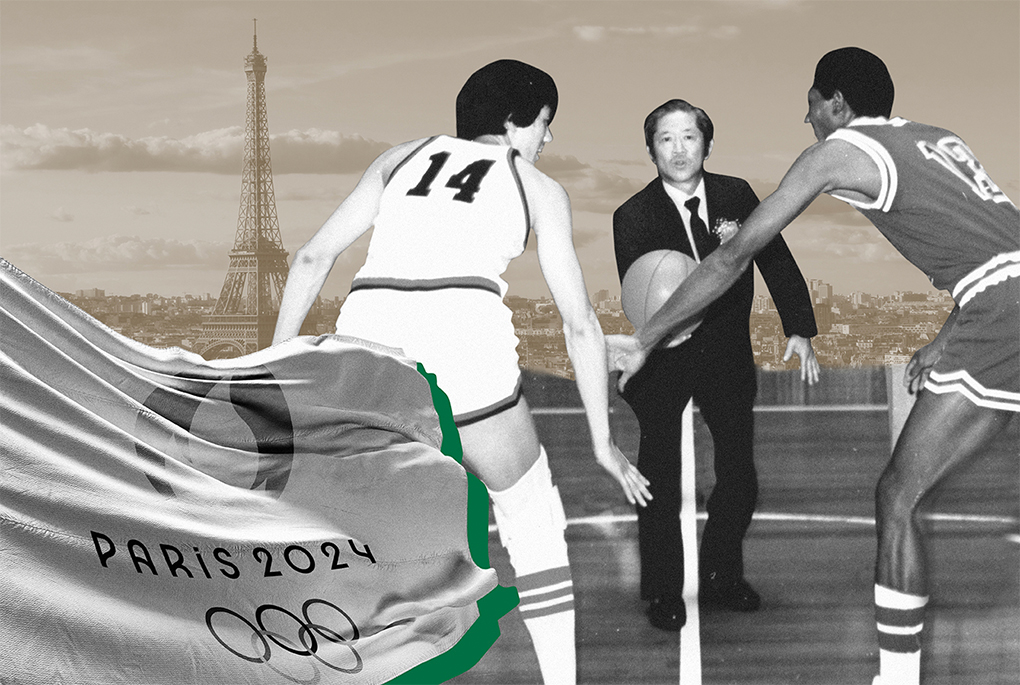
Editor’s Epilogue
A World United Through Sports
Sports represent various principles and cultures. The orderly cheering of the crowd, the fair sportsmanship of the athletes, and the wise strategies of coaches and staff—all contribute to why so many people are passionate about sports and shed tears when competing. Sports are not just about showcasing one’s skills at a particular moment but are the result of consistent effort, which is why they resonate so deeply with people. The sports culture that Jangwon cultivated was no different. He was not only a driving force behind the revival of sports but also a passionate individual who, together with the public, cheered on the athletes, witnessing a nation united through sports.
We experience this unity through sports, regardless of age, gender, or nationality. The upcoming Olympics in August 2024 will once again offer us that sense of unity. As we cheer for competitions free from discrimination based on personal, racial, religious, or political grounds, we will feel our hearts swell with excitement. The time will come for everyone to share in the triumphs and the bitter moments of defeat as we watch the athletes sweating and striving for victory. Looking forward to the 2024 Paris Olympics, we envision an era of true sportsmanship.
Written and photographed by Juyoun Lee (Sanchaekbang)
Managed by Around
Revised critical edition by SuRyuSanBang
Planning and coordination Amorepacific Communications Team
-
Like
0 -
Recommend
1 -
Thumbs up
0 -
Supporting
0 -
Want follow-up article
0




